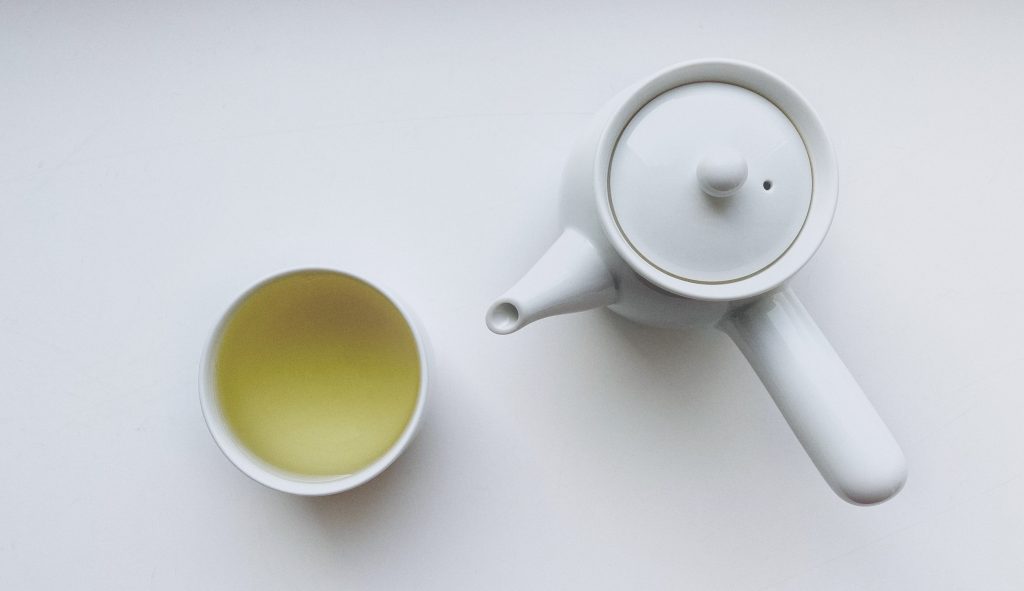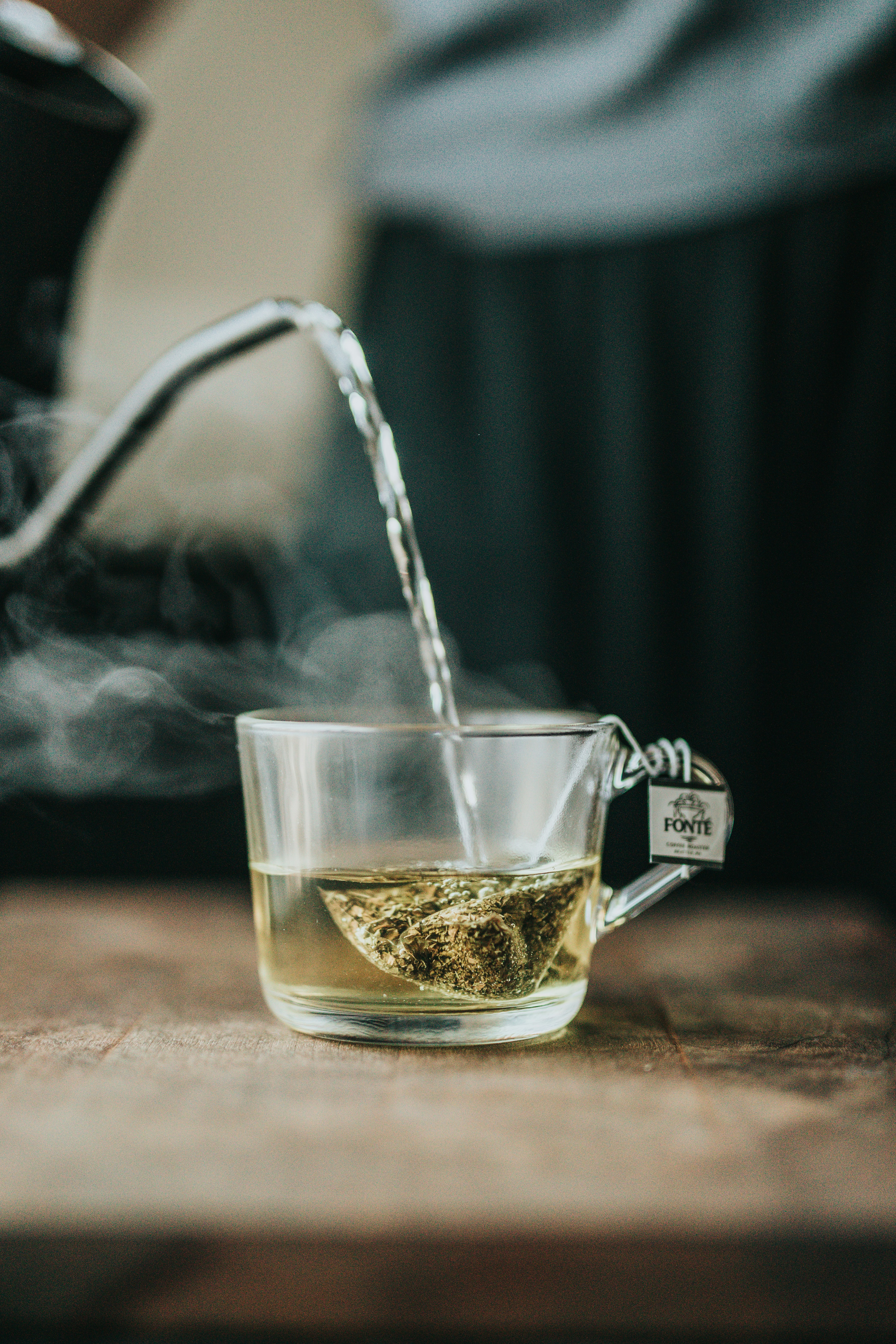Is Green Tea A Suitable Option For Reducing Stress And Promoting Relaxation?
In today’s fast-paced society, stress and tension have become common companions in our lives. In the pursuit of finding effective ways to reduce stress and promote relaxation, one question frequently arises: is green tea a suitable option? Green tea, often hailed for its numerous health benefits, has gained popularity as a potential remedy for stress reduction. This article aims to examine the evidence and shed light on whether green tea lives up to its reputation as a calming and soothing beverage.
What is Green Tea?
Green tea is a type of tea that is made from the leaves of the Camellia sinensis plant. Unlike black tea, which undergoes fermentation, green tea is made from leaves that have not been oxidized. This minimal processing helps to preserve the natural compounds found in the leaves, making green tea a popular choice for its potential health benefits.
Origin of Green Tea
Green tea has a long history that can be traced back thousands of years to ancient China. It is believed to have been first discovered by the Chinese Emperor Shennong in 2737 BCE. Legend has it that the emperor was boiling water when leaves from a nearby tea tree fell into his pot, resulting in the creation of green tea. Green tea then spread to other parts of Asia, such as Japan and Korea, where it became an integral part of their cultures and traditional practices.
Different types of Green Tea
There are many different types of green tea, each with its own unique flavor profile and characteristics. Some of the most popular varieties include:
-
Sencha: Sencha is one of the most common types of green tea in Japan. It has a delicate and slightly grassy flavor, making it a refreshing choice.
-
Matcha: Matcha is a powdered form of green tea that is known for its vibrant green color. It is made by grinding the leaves into a fine powder, which is then whisked into hot water to create a frothy beverage. Matcha has a rich and creamy taste, with a slight bitterness.
-
Gunpowder: Gunpowder green tea is a Chinese green tea that is tightly rolled into small pellets. When brewed, the pellets unfurl and release a bold and slightly smoky flavor.
-
Longjing: Longjing, also known as Dragon Well tea, is a famous green tea from China. It has a smooth and chestnut-like flavor, with a hint of sweetness.
These are just a few examples of the countless varieties of green tea available, each offering a unique taste experience.
The Benefits of Green Tea
Aside from its refreshing taste, green tea is also known for its potential health benefits. It has been studied extensively, and research suggests that green tea may offer numerous advantages for stress reduction, relaxation, mood enhancement, sleep quality, and cognitive functioning.
Reducing Stress and Promoting Relaxation
Stress is a common issue faced by many people in today’s fast-paced world. Green tea has been found to contain certain compounds, such as L-theanine, which have been shown to promote relaxation and reduce stress levels. L-theanine is an amino acid that is found almost exclusively in tea leaves, and it is thought to have a calming effect on the brain without causing drowsiness.
Research has indicated that L-theanine may stimulate the production of alpha brain waves, which are associated with a state of relaxation. These brain waves are typically present during meditation and deep relaxation practices. By increasing alpha wave activity, green tea may help to combat stress and induce a sense of calmness.
Boosting Mood
In addition to reducing stress, green tea may also have a positive impact on mood. Some studies suggest that the polyphenols in green tea can help to elevate mood and reduce feelings of depression and anxiety. These polyphenols act as antioxidants and have been shown to have neuroprotective effects, potentially influencing mood regulation.
While more research is needed in this area, preliminary findings are promising and indicate that regularly consuming green tea may have a positive impact on mood and overall emotional well-being.
Improving Sleep Quality
Quality sleep is essential for overall health and well-being. Green tea may offer potential benefits in improving sleep quality, thanks to its L-theanine content. L-theanine has been found to have sleep-enhancing properties, promoting relaxation and helping individuals to fall asleep more easily.
Additionally, green tea contains a moderate amount of caffeine, which can help to increase alertness and boost energy levels during the day. However, it is important to note that consuming green tea late in the day or in the evening may interfere with sleep, particularly for individuals who are sensitive to caffeine.
Enhancing Cognitive Functioning
Green tea has long been valued for its potential cognitive benefits. The combination of L-theanine and caffeine found in green tea has been shown to have a positive impact on cognitive functioning, including improved attention, focus, and memory.
The L-theanine content in green tea helps to promote a state of calm focus, while the caffeine provides a mild stimulant effect that can enhance alertness and cognitive performance. This combination is believed to contribute to the reported cognitive benefits of green tea.
The Science Behind Green Tea’s Effects on Stress and Relaxation
Role of L-Theanine
L-theanine is a key component in green tea that has been extensively studied for its effects on stress reduction and relaxation. It is an amino acid that is structurally similar to glutamate, a neurotransmitter in the brain that is involved in excitatory signaling.
L-theanine is known to cross the blood-brain barrier and can reportedly increase dopamine and serotonin levels in the brain, which are neurotransmitters associated with mood regulation and relaxation. It also has the ability to modulate alpha brain waves, inducing a state of calmness and relaxation without causing drowsiness.
Impact on Brain Waves
Green tea, specifically its L-theanine content, has been found to influence brain wave activity. Studies have shown that L-theanine can increase the production of alpha brain waves, which are typically associated with a relaxed and meditative state.
Increased alpha brain wave activity has been linked to reduced stress, anxiety, and improved cognitive performance. This suggests that the consumption of green tea may help to promote a state of relaxation and mental clarity.
Interaction with Neurotransmitters
Green tea, through its L-theanine content, has been found to interact with various neurotransmitters in the brain, including glutamate, dopamine, and serotonin. These neurotransmitters play a significant role in regulating mood and stress response.
L-theanine has been shown to increase dopamine and serotonin levels in the brain, which can help to elevate mood and reduce feelings of stress and anxiety. Additionally, it can inhibit the excitatory effects of glutamate, promoting a sense of calmness and relaxation.
How to Incorporate Green Tea into Your Daily Routine
Choosing the Right Green Tea
When incorporating green tea into your daily routine, it is important to choose a high-quality tea that suits your taste preferences. There are many different varieties available, each with its own unique flavor profile.
Consider exploring different types of green tea, such as Sencha, Matcha, Gunpowder, or Longjing, to find the one that appeals to your taste buds. Experiment with different brands and preparation methods to determine your preferred green tea experience.
Brewing and Serving Techniques
To make the perfect cup of green tea, it is important to pay attention to the brewing and serving techniques. Here are some tips to ensure the best flavor and aroma:
-
Use fresh, filtered water: Start with high-quality water to ensure the best taste. Avoid using tap water, as it may contain impurities that can affect the flavor.
-
Optimal water temperature: Green tea is generally best brewed at a lower temperature than black tea. Aim for water temperature around 175°F (80°C) to avoid scalding the leaves and creating a bitter taste.
-
Steeping time: The ideal steeping time for green tea can vary depending on the type and personal preference. Generally, 2-3 minutes is recommended. Be careful not to over-steep, as it can result in a bitter taste.
-
Serving suggestions: Green tea can be enjoyed hot or cold, depending on your preference. Consider adding a slice of lemon or a sprig of mint for additional flavor and freshness.
Remember, the quality of your green tea, along with the brewing and serving techniques, can greatly impact the taste and overall experience. Experiment with different methods to find the perfect cup of green tea that suits your preferences.

Other Calming Herbal Alternatives to Green Tea
While green tea offers many benefits for stress reduction and relaxation, there are several other herbal teas that can also be effective in promoting calmness and well-being. Here are a few examples:
Chamomile Tea
Chamomile tea is well-known for its calming properties. It is made from the flowers of the chamomile plant and has a mild, floral taste. Chamomile tea is often consumed before bed to promote relaxation and improve sleep quality.
Lemon Balm Tea
Lemon balm tea is derived from the leaves of the lemon balm plant. It has a subtle lemon scent and a slightly sweet taste. Lemon balm tea is believed to have a soothing effect on the nervous system and can help to reduce anxiety and promote relaxation.
Valerian Root Tea
Valerian root tea is made from the dried roots of the valerian plant. It has a strong, earthy flavor and is commonly used to alleviate anxiety and improve sleep quality. Valerian root tea is best consumed in the evening, as it can have a sedative effect.
These herbal teas offer natural alternatives to green tea for those seeking calming effects. Experiment with different herbal teas to find the ones that resonate with you and best suit your individual needs.
Precautions and Considerations
While green tea is generally considered safe and offers numerous potential health benefits, there are a few precautions and considerations to keep in mind:
Caffeine Content
Green tea contains caffeine, although in smaller amounts compared to black tea or coffee. If you are sensitive to caffeine or consume green tea in large quantities, it may interfere with sleep or cause restlessness. Consider consuming green tea in moderation and avoid it close to bedtime if you are caffeine-sensitive.
Potential Interactions with Medications
Green tea may interact with certain medications, including blood thinners, beta-blockers, and some antidepressants. If you are taking any medications, it is advisable to consult with your healthcare provider to determine if green tea is suitable for you.
Individual Sensitivities and Allergies
Some individuals may be sensitive or allergic to certain compounds found in green tea. If you experience any adverse reactions, such as allergies, gastrointestinal discomfort, or headaches after consuming green tea, discontinue use and consult with a healthcare professional.
It is always important to listen to your body and consult with a healthcare provider if you have any concerns or questions regarding the consumption of green tea or any other herbal teas.
Conclusion
Green tea, with its long history and potential health benefits, can be a suitable option for reducing stress and promoting relaxation. The natural compounds found in green tea, such as L-theanine, can help to induce a state of calmness and enhance overall well-being. Incorporating green tea into your daily routine can be a simple and enjoyable way to support your mental and physical health.
However, it is important to keep in mind that individual preferences, sensitivities, and health conditions may vary. If you have any specific concerns or questions, it is always advisable to consult with a healthcare professional. By understanding the science behind green tea’s effects, choosing the right tea and brewing techniques, and being aware of potential precautions, you can make green tea a beneficial addition to your lifestyle. Cheers to a relaxed and peaceful journey with green tea!


Comments are closed, but trackbacks and pingbacks are open.